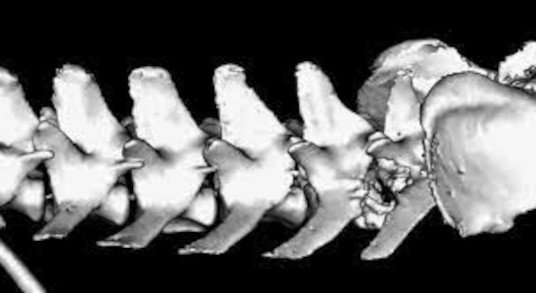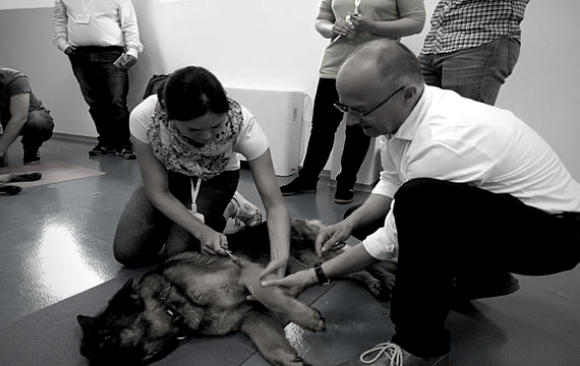
by tatkonasajt | Dec 22, 2023
Thomas Flegel (Germany)
Diplomate ACVIM (Neurology), Diplomate ECVN
(Neurology)
Veterinary Training
1986-1992 – Humboldt-University Berlin, Germany
Working Experience
1992-1998 – Working experience in large and small animal medicine in university (Freie University Berlin) as well as in private practice in Berlin
1998-1999 – Department of Companion Animals and Special Species College of Veterinary Medicine, North Carolina State University, USA, Internship in Veterinary Neurology
1999-2001 – Department of Veterinary Clinical Scienes, The Ohio State University, USA, Residency in neurology and neurosurgery
Since November 2002 – Department of Small Animal Medicine, University of Leipzig, Germany, Head of the section of neurology and neurosurgery
Veterinary and Academic Qualifications
1994 – Doctor medicinae veterinariae (summa cum laude)
2001 – Master of Veterinary Sciences (The Ohio State University, USA)
2003 – Diplomate American College of Veterinary Internal Medicine (Neurology)
2005 – Diplomate European College of Veterinary Neurology
2008 – European Specialist in Veterinary Neurology
2010 – Dr. med. vet. habilitatus (small animal surgery and small animal neurology)
since 2012 – President of the European College of Veterinary Neurology
DAY 1
| Time |
Title |
| 09:00 – 09:15 |
Welcome and Introduction |
| 09:15 – 09:45 |
Neurolocalisation spinal cord |
| 09:45 – 10:45 |
Talk: Thoracolumbar hemilaminectomy |
| 10:45 – 11:15 |
Coffee break |
| 11:15 – 11:45 |
Wetlab Demonstration: Thoracolumbar hemilaminectomy (done by Flegel) |
| 11:45 – 13:00 |
Wetlab: Thoracolumbar hemilaminectomy Part I (done by particpants) |
| 13:00 – 14:00 |
Lunch break |
| 14:00 – 15:45 |
Wetlab: Thoracolumbar hemilaminectomy Part II (done by participants) |
| 15:45 – 16:15 |
Coffee break |
| 16:15 – 17:00 |
Talk: Thoracolumbar partial lateral corpectomy |
DAY 2
| Time |
Title |
| 09:00 – 10:30 |
Neurolocalisation spinal cord based on videos |
| 10:30 – 11:00 |
Coffee break |
| 11:00 – 11:45 |
Talk: Cervical ventral slot |
| 11:45 – 12:15 |
Wetlab: Demonstration: Cervical ventral slot (Flegel) |
| 12:15 – 13:15 |
Lunch break |
| 13:15 – 15:30 |
Wetlab: Cervical ventral Slot Part I (done by participants) |
| 15:30 – 16:00 |
Coffee break |
| 16:00 – 17:00 |
Wetlab: Cervical ventral Slot Part II (done by participants) |

by tatkonasajt | Jan 17, 2023
HOW TO DESCRIBE WHAT YOU SEE AND KNOW IF IT IS NORMAL
The neurological examination is one of the most important and cost-effective tools in clinical neurology
During this course delegate will learn:
- To determine if the nervous system is affected in a disease process (to detect the presence of a neurological abnormality)
- To establish an accurate anatomical diagnosis, to localise the lesion (to determine its location)
The neurological examination is the most important step in identifying if a patient’s condition is neurological (versus medical or orthopedic) and where in the nervous system the pathology is located. Delegate will be explained how to establish a routine standard procedure for examining an animal. This will provide the experience and confidence necessary to make an accurate neuroanatomical diagnosis. The neurological examination should enable an anatomical diagnosis to be established and determine where the lesion is: Brain, Spinal cord or Peripheral nerve and muscle. It is important to consider if one lesion can explain all deficits, or if the disease is more diffuse or multifocal.
This course is aimed at the every clinician as well to those with more experience and interest in small animal neurology.
DAY 1
| Time |
Title |
| 09:00 – 09:15 |
Welcome and Introduction |
| 09:15 – 09:45 |
Multiple Choice Test |
| 09:45 – 11:00 |
Talk: Neurological Examination |
| 11:00 – 11:30 |
Coffee break |
| 11:30 – 12:00 |
Demonstration of Neurological examination |
| 12:00 – 13:15 |
Neurological examination performed by participants |
| 13:15 – 14:15 |
Lunch |
| 14:15 – 15:45 |
Talk: Neurolocalisation |
| 15:45 – 16:15 |
Coffee break |
| 16:15 – 17:45 |
Neurolocalisation with everybody together based on videos Part I (6 cases) |
DAY 2
| Time |
Title |
| 09:00 – 11:00 |
Neurolocalisation based on videos in groups part II (6 cases) |
| 11:00 – 11:30 |
Coffee break |
| 11:30 – 13:00 |
Cases from the first session of the day are presented by the participants to everybody and discussed together |
| 13:00 – 14:00 |
Lunch |
| 14:00 – 15:45 |
Neurolocalisations on real patients (if available) |
| 15:45 – 16:15 |
Coffee break |
| 16:15 – 17:30 |
Discussion of own cases (every participant has to bring one own case) |
| 17:30 – 18:00 |
MC-Test to allow the participants to judge the progress they have made during the seminar |



